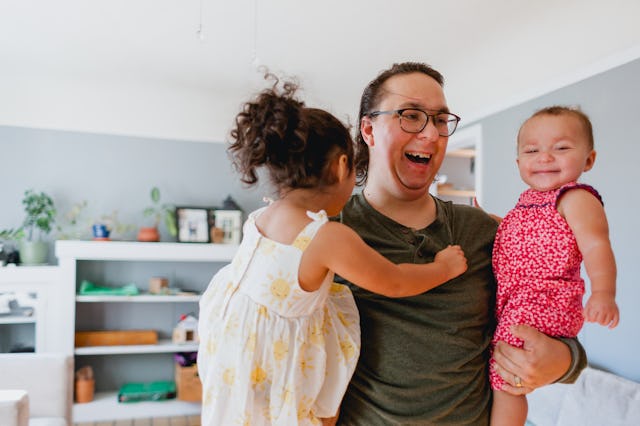Your Kids Might Make You More Politically Conservative
Researchers found that people who do not have children tend to be more socially liberal than parents.

It seems like becoming more conservative is just part of the aging process (along with popping ibuprofen every morning and staring at your forehead wrinkles in the mirror). It could be assumed that just the general process of getting older and having lived more life could be the reason for why some people seem to lean more right as the years go by, but according to new research, that actually might not be the case.
Researchers at Tulane University have found that people who do not have kids tend to be more socially liberal than parents, arguing that it’s actually spawning babies that makes people lean to the right more than just old age.
“There is this idea that as you get older you become more conservative from experience and from being bitten by the real world,” said Dr. Nick Kerry, co-author of the research. “But it doesn’t seem to be the case. If you look at people who are not parents, you just do not see an age difference.”
The study also could shed light on why many countries are seeing declining birthrates. “I think it could contribute to liberalsation in those countries,” said Kerry.
Published in the Proceedings of the Royal Society B academic journal, Kerry and other researchers reported after surveying 2,610 people in 10 countries, that people who are already parents or who had greater desires to be a parent scored higher in social conservatism.
Another part of the research study used archival data from over 400,000 individuals in 88 countries to help support this parenting-conservatism link.
In another experiment, 376 university students in the US were split into two groups. One group was shown images of household items and asked to talk about how they might use them, while the other group was shown images of children and asked to think about possible names and positive interactions with kids. Both groups then completed a survey on views on issues such as abortion and traditional marriage.
The team found that participants who spent time imagining time with a child gave more socially conservative responses than those who thought about household objects.
“Given that socially conservative values ostensibly prioritize safety, stability and family values, we hypothesized that being a parent or being more invested in parental care might make socially conservative policies more appealing,” said corresponding author Nick Kerry, PhD, a Tulane alumnus. “Parental status and parental care motivation were robustly associated with social conservatism in many diverse countries, from Lebanon to Japan.”
So, what about the millions of parents out there who identify as liberal? The researchers behind this study know there will be some doubters.
“This is, of course, a large claim, and large claims require large amounts of evidence,” he said.
“We've now tested this possibility across multiple investigations and have tried to prove the idea wrong in innumerable ways. We’ve controlled for any variables we, or others, could think of that might account for the parenthood-social conservatism link. But the relationship remains. We're currently doing further research to better understand all the diverse ways in which our parenting motivations manifest.”
One important factor to note about this research is that the research did not say parents were more fiscally conservative. “We find that parents do change their economic preferences and are more in favor of government spending,” Dr Diana Burlacu of Newcastle University said regarding her own research. Although she also noted that parents’ support of government services like daycare (so, not the U.S., clearly) only lasted while they were using them.
The entire study can be read in the journal, Proceedings of the Royal Society B.